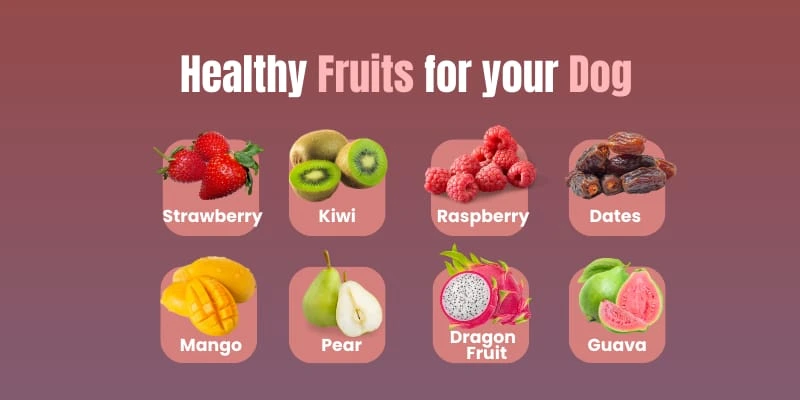Can Dogs Eat Grapes? 🍇🐶
Published: 29 Jan 2025
Dogs cannot eat any type of grapes or grape-derived products, including raisins, grape juice, wine, jams, jelly, or dried fruit mixes. All forms of grapes are unsafe, regardless of type or quantity.
A few years ago, a Golden Retriever named Max was brought to me with severe weakness and vomiting. His owner was confused—Max had been perfectly healthy that morning, so what happened to him within just a few hours? After running tests, I discovered he was suffering from acute kidney failure. The cause was grape poisoning. His owner had unknowingly shared a few grapes with him as a snack, unaware of how toxic they are to dogs.
That day was a harsh reminder—grapes, in any form, are not safe for dogs. I know this sounds alarming, but don’t worry—I’ll explain why grapes are toxic and what to do if your dog eats them. Let’s start a journey to save our pets.
Why Are Grapes Toxic to Dogs?
Grapes contain tartaric acid, and dogs are sensitive to it. Tartaric acid attacks the kidney and disrupts its function, leading to increased nitrogen waste in the blood (azotemia). This makes it harder for the kidneys to filter toxins. As kidney function declines, dogs may become severely dehydrated and stop urinating, leading to toxin buildup in the body (uremia).
The toxin in grapes was unknown before 2021. This mystery was solved by Dr. Colette Wegenast, a senior consulting veterinarian in clinical toxicology at the ASPCA Animal Poison Control Center (APCC), a division of the ASPCA.
She investigated a case of playdough toxicity in a dog. The playdough contained cream of tartar, which also has tartaric acid. This led to the discovery that tartaric acid in grapes is responsible for poisoning in dogs.
The exact mechanism of how tartaric acid affects dogs is still unknown. However, this finding will help improve understanding, testing, and treatment for grape and raisin toxicity.
Symptoms of Grape Poisoning in Dogs
Ingestion of grapes or raisins can result in severe kidney failure. The symptoms of grape poisoning typically appear within hours and may include:
- Vomiting
- Diarrhea
- Lethargy
- Loss of appetite
- Abdominal pain
- Increased thirst but no urination
- Weakness
- Tremors or collapse

What to Do If Your Dog Eats Grapes
If your dog eats grapes, immediate action is critical. In the case of Max, he was vomiting and acting lethargic just hours after eating a few grapes. By the time Max arrived, his kidneys were already showing signs of severe damage. Despite our best efforts, the delay in treatment made recovery more difficult, and Max faced a long, tough road to recovery.
Here’s what you should do if your dog eats grapes:
- Contact your veterinarian immediately: The sooner you get your dog to a vet, the better. Grapes damage organs rapidly, and early treatment is key to improving your dog’s chances of recovery.
- Don’t wait for symptoms: Even if your dog shows no signs of distress after consuming grapes, seeking help is essential. Symptoms can appear hours later, and the damage to the body may already be happening.
- Induce vomiting (only if advised by a vet): If the ingestion was recent, your vet may instruct you to induce vomiting to prevent further absorption of toxins. This should only be done under veterinary guidance.
- Bring the grapes with you: If possible, bring the remaining grapes or packaging to the vet, as this can help them understand the type and the amount of toxin ingested.
- Stay calm and follow your vet’s instructions: The vet may administer different treatments to help flush out the toxins and support kidney function.
Don’t risk waiting—grape toxicity can be deadly. Like Max, your dog may show symptoms quickly, so prompt veterinary care can be life-saving.
Do all Grapes Have the Same Toxicity Level?
No, not all grapes have the same toxicity level. The amount of tartaric acid in grapes varies based on:
- Grape type – Different varieties contain different levels of tartaric acid.
- Ripeness – The concentration of tartaric acid changes as the grape matures.
- Growing conditions – Soil, climate, and farming practices can affect tartaric acid levels.
Because of these variations, some dogs may experience severe poisoning from just a few grapes, while others may not show immediate symptoms.
Are All Dogs Affected in the Same Way?
No, not all dogs are affected the same way by grapes. The severity of grape toxicity can vary greatly from one dog to another. While some dogs may eat grapes and show no symptoms at all, others can experience severe kidney failure after consuming just one or two. The reaction depends on factors like the dog’s size, age, overall health, and the amount of grapes consumed.
Even within the same breed, different dogs can have different sensitivities to grapes. Unfortunately, there is no way to predict which dogs will be affected, so it’s important to be cautious and avoid giving grapes to any dog.
Safe Fruit Alternatives for Dogs
If you’re looking for safer fruit alternatives for your dog, there are several healthy fruits that are not only tasty but also beneficial. Here are some fruits that are safe for dogs to enjoy in moderation:
- Apples
- Blueberries
- Bananas
- Strawberries
- Watermelon
- Pineapple
- Pears
- Cantaloupe

| Tips for Serving Fruits! |
|---|
|
Conclusion
Your question was, “Can dogs eat grapes?” and I answered no.
Grapes, raisins, and sultanas are toxic to dogs, regardless of their form. While dried versions contain higher toxin levels, fresh grapes are still dangerous and should never be considered safe. Even small amounts can cause severe health issues, including kidney failure.
Keep all grape products out of your dog’s reach and educate family members about the risks. If your dog accidentally eats grapes or raisins, contact your vet immediately. Instead of grapes, offer safe alternatives like blueberries, apples (without seeds), or carrots as healthy treats. 🍇🐶
Have you ever shared a toxic fruit with your dog? How did you handle that? Share your experience in the comments to help other pet parents.
FAQs About Dogs and Grapes
Let’s discuss frequently asked questions about “Can dogs eat grapes?”
Even if your dog seems fine after eating a grape, it’s important not to assume they’re out of danger. Some dogs show symptoms of poisoning immediately, while others may not show signs until hours or even days later. It’s always safest to contact your vet as soon as you realize your dog has eaten grapes, even if they don’t seem affected.
No, seedless grapes are just as toxic to dogs as grapes with seeds. The toxic substance in grapes, tartaric acid, is present in all types of grapes, regardless of whether they have seeds or not.
No, dogs should not eat grape-flavoured jams or jelly. Even though they may not contain real grapes, these products often contain added sugars, artificial sweeteners, and preservatives that are not healthy for dogs. Some jams and jellies may also contain grape juice or flavouring, which could still pose a risk due to the potential presence of harmful compounds.
Yes, with prompt veterinary care, some dogs can recover from grape poisoning. However, if kidney damage occurs, it may be permanent and could require ongoing treatment. Early intervention is crucial to improving the chances of recovery.
The most effective way to prevent grape poisoning is to completely avoid giving grapes, raisins, sultanas, or grape-flavoured products to your dog. Ensure that grapes are not accessible to your dog, especially if they are left out or in food storage areas. Educating family members and guests about the dangers of grapes to dogs can also help prevent accidental ingestion.
References:
https://web.archive.org/web/20070407002440/http://www.aspca.org/site/News2?page=NewsArticle&id=1664
https://pubmed.ncbi.nlm.nih.gov/32893916

- Be Respectful
- Stay Relevant
- Stay Positive
- True Feedback
- Encourage Discussion
- Avoid Spamming
- No Fake News
- Don't Copy-Paste
- No Personal Attacks

- Be Respectful
- Stay Relevant
- Stay Positive
- True Feedback
- Encourage Discussion
- Avoid Spamming
- No Fake News
- Don't Copy-Paste
- No Personal Attacks





